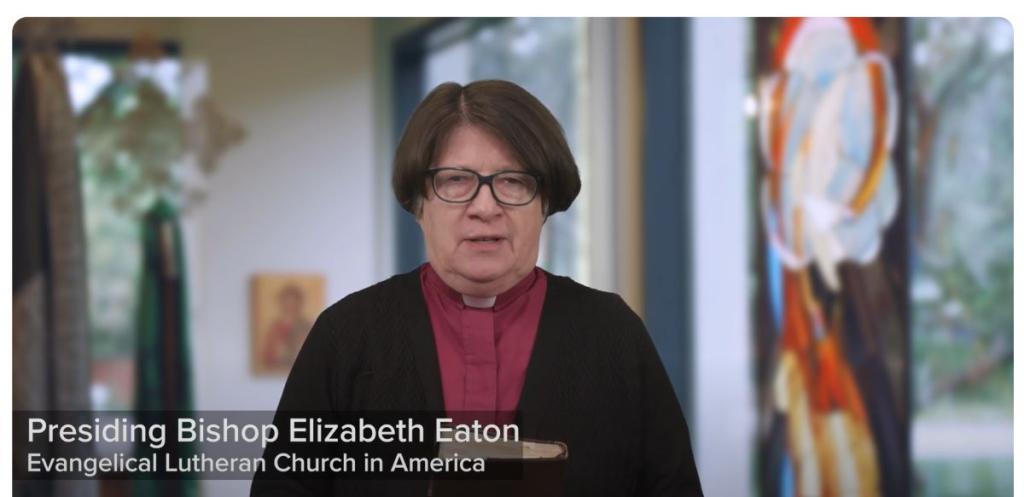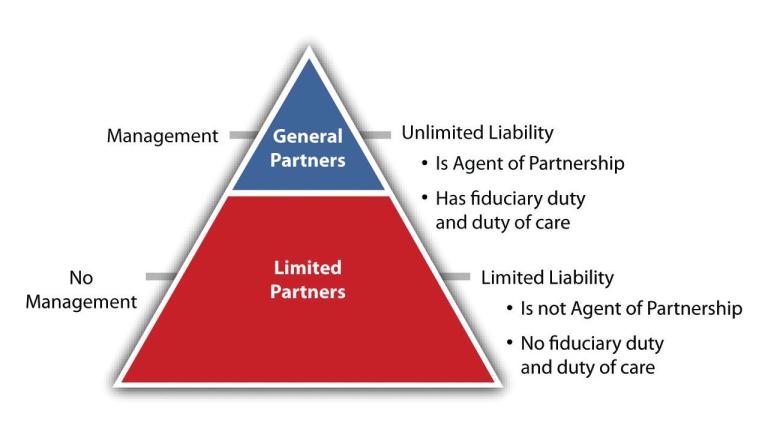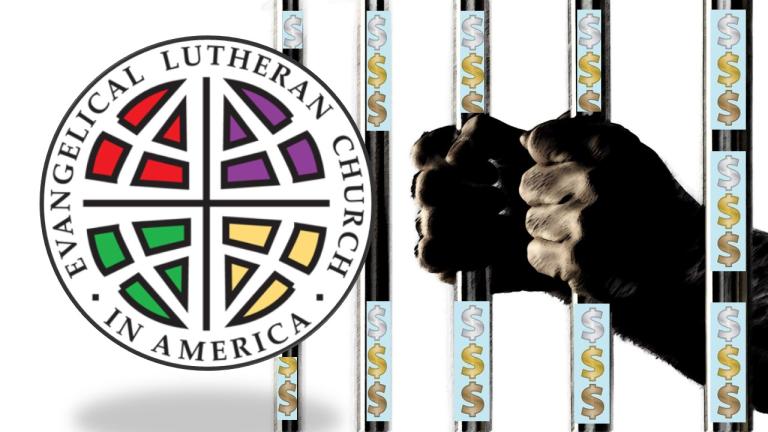The ELCA is obeying in advance by refusing to join a multifaith lawsuit defending churches against Trump’s violation of their First Amendment rights.

I write this piece as an ELCA-ordained minister and lifelong Lutheran. The ELCA had the opportunity to join a multifaith lawsuit defending congregations’ First Amendment rights against the draconian policies of the Trump administration. In an act of capitulation, however, the ELCA caved with the flimsy excuse that the churchwide organization would have no legal standing. This is what’s known as “obeying in advance.”
The executive order and the backlash
On day one of Trump’s new administration, he signed an executive order rescinding the policy that prevented ICE agents from entering places like hospitals, schools, and churches to arrest international citizens.
This means that ICE agents can now potentially stalk and arrest people who attend church. This is a clear violation of the First Amendment’s protection of the right to assembly and free expression of faith.
On Feb. 11, more than two dozen denominations and religious organizations filed a federal court lawsuit against Trump’s executive order.
But on February 14, 2025, Bishop Elizabeth Eaton posted a video stating that the ELCA will not join the lawsuit.
The reason?
Bishop Eaton explained: “Given the ELCA’s polity and denominational structure, the churchwide organization would not be an appropriate plaintiff in these actions.”
Let’s pause here.
In Timothy Snyder’s book On Tyranny, he gives twenty instructions for resisting autocracy. The first is:
Do not obey in advance.
“Most of the power of authoritarianism is freely given,” Snyder writes. “In times like these, individuals think ahead about what a more repressive government will want, and then offer themselves without being asked. A citizen who adapts in this way is teaching power what it can do.”
In this case with the ELCA, a church leader is adapting to a repressive government and teaching power what it can do.
By choosing not to join the lawsuit defending its congregations, the ELCA is obeying in advance.
Because, on its face, the argument of having no standing is false.
The ELCA describes its churchwide organization as a church body “organized in three expressions — congregations, synods, and the churchwide organization.” Each expression has its particular functions. However, “all three together share a common mission of doing God’s work in the world and proclaiming the good news of Jesus Christ. Together, they ensure a solid foundation of leadership, active involvement in communities, opportunities for dialogue and diverse perspectives, creative partnerships, and support for members and ministries of the ELCA.” (https://elca.org/About/Churchwide)
So, what Eaton said in the video about the ELCA having no standing is not correct.
Craig Lundgren, an attorney and ELCA parishioner in California, explained it to me like this.
Standing hinges on whether the plaintiff can show that one has 1) suffered or is threatened with an invasion of a legally protected interest; 2) that the injury can be traced to the threatened action and 3) that the injury will likely to be redressed by a favorable decision. (See Lujan v. Defs. of Wildlife, 504 U.S. 555, 560–61 (1992).)
The ELCA does have standing.
The ELCA has standing because under chapter 4, paragraph 4.03 of its Constitution and bylaws, the ELCA, as a church, exists to “Establish, and support those congregations, ministries, organizations, institutions, and agencies necessary to carry out God’s mission through this church.” This is the mission of the ELCA, and that mission is protected under the first amendment to the constitution.
The ELCA’s mission is damaged when parishioners and members of the public are prevented from participating in the “congregations, ministries, organizations and institutions of the ELCA.” Already congregations have seen participation dop because of the actions taken and threatened under the new policy. That threat can only be resolved by an injunction.
In other words, the ELCA’s ability to show standing is beyond question.
Further, it is not correct, as some have claimed, that the ELCA would “tank the suit” if it joined. If a judge would decide that the ELCA has no standing, the suit would simply go on without them.
So, if the legal standing question and the polity structure are not the real reasons the ELCA did not join the lawsuit, what is?
To answer that question, we must look back to the year 2021 when Eaton refused to intervene in the case of Rev. Nelson Rabell González, an ELCA pastor of color who was falsely accused of misconduct and suffered attacks from then-bishop Megan Rohrer. The ELCA legal counsel told Rev. Rabell and his legal team that, essentially, the presiding bishop had no standing to intervene in the case.
Over the course of six months, the truth about Rohrer’s misconduct resulted in his being removed from the ELCA roster, and Rev. Rabell was vindicated. But three years later, the original perpetrators of the lies still have not been held accountable. And despite a weak apology from Eaton and the bare minimum of financial restitution, the truth is that Eaton failed her responsibilities.
And she’s doing it again.
As with Eaton’s handling of Rev. Rabell’s case, this decision not to join the lawsuit defending its churches indicates that the ELCA is obeying in advance.
This is because the ELCA’s stated intentions do not align with its practices.
Time and again, we have seen that the “common mission” is broken.
This brokenness is because, following the advice of attorneys, legal walls have been built between the three expressions of the church until they are hardly recognizable.
As a result, the ELCA has been designed to function on the model of corporate America. (See: The Corporate Captivity of the ELCA.) In this model, a parent corporation sets up several limited liability companies so that it can avoid any legal obligation if one of its smaller companies is sued.

If a subsidiary is sued for damages or restitution, the parent corporation claims it is not liable. The smaller company might be successfully sued, but the larger corporation remains untouched by any legal consequences.
This is how the ELCA functions.
The decision not to enter the lawsuit is about protecting the Presiding Bishop and the churchwide office from being attacked by the Trump administration.
But while this separation and alienation between the ELCA and its congregations may be nice for liability purposes, it makes no sense in the context of our common ministry. Congregations and synods are not strangers to the ELCA. They are part of the life blood of the denomination.
Says Lundgren, “Holding congregations at arm’s length, and contending that an injury to its congregations and synods is not an injury to the ELCA is both ludicrous and startling. If the ELCA is not hurt by attacks on its congregations, what business does it have leading those congregations?”
Further, what business does Eaton have in making a decision that may hinder the options of future Presiding Bishops to formulate responses as a denomination to other potential infringements on our religious freedoms?
In the meantime, churches are wondering what they are supposed to do when targeted by Trump’s policies.
According to Eaton, “congregations can demonstrate that they would be harmed by the recission, and they would have standing in this lawsuit.”
This is a devastating and harmful response.
This is because the ELCA’s alienation from its congregations extends to its synods who would be similarly separate and “unharmed” when its congregations are attacked. Even more plainly, individual congregations have no “standing” to protect their sister congregations. Which means that they are all alone. They are all separate. Only the congregations that are victims, and who have the most to lose from identifying themselves, can speak.
The rest of the ELCA entities can simply look away, hoping that they will not be next.
We saw this in the life of the church with the abandonment of Rev. Nelson’s congregation when it was attacked by Rohrer.
And it raises serious theological issues about what it means to be a church in the ELCA.
Imagine what affect Eaton’s decision has on our clergy and congregations when they’re told, “No one has a vested interest in your persecution but you. Your access to the gospel is your problem, not ours. You’re on your own. We will not stand with you.”
What, then, is the ELCA?
Standing in a court case may sound like a legal issue, but it’s a theological question at its core. Are we together on this? Does the ELCA, as a part of the Body of Christ, have a stake in the ability of its churches to spread the gospel to people who are afraid?
Eaton’s decision flies in the face of Paul’s teaching in 1 Corinthians 12:12-27 about all members, especially the weakest, being part of the body of Christ. Paul says, “If one member suffers, all suffer together with it.”
But Eaton says, “We will not join in your suffering if you are injured. Not this time. You are on your own.”
Are we alone?
Surely it doesn’t need to be this way. If any party has a right and obligation to align with and protect individual congregations, it is our national body, the ELCA, in accordance with its constitution. Apparently, however, this is not what Eaton wants.
Instead, Eaton is willing to let pastors and congregations be the sacrificial lambs so as to protect the church’s power and wealth.

This is especially true when it comes to historically minoritized clergy and congregations with international members. They are the ones who suffer the most from this decision.
We must call this what it is. Eaton’s decision is a sin against the church of Jesus Christ.
Because the ELCA is obeying in advance, they are forcing individual congregations to stand alone instead of under the protection of the entire denomination. As a result, the churchwide office is throwing us to the wolves.
Jesus had a name for this kind of leader.
HIRED HAND.
In John 10:11-13, he said:
“The good shepherd lays down his life for the sheep. 12The hired hand, who is not the shepherd and does not own the sheep, sees the wolf coming and leaves the sheep and runs away—and the wolf snatches them and scatters them. 13The hired hand runs away because a hired hand does not care for the sheep.”
Because the ELCA is obeying in advance, they are nothing more than a hired hand who sees the Trump Wolf coming, leaves the sheep, and runs away. The wolf is going to snatch and scatter us while the hired hand escapes.
The prophet Jeremiah had a warning for religious leaders who abdicated their duty to protect their people.
“Woe to the shepherds who destroy the sheep of my pasture, says the Lord,” (Jer. 23:1)
There were “shepherds” (leaders) of Israel who were trusted to protect the sheep and guide them with God’s commands of justice and righteousness. But they turned out to be wolves in shepherds’ clothing. They cared only about preserving their own power.
But God sees exactly what’s going on.
In v. 2, Jeremiah tells the leaders that they have scattered the flock and driven them away. Because the ELCA is obeying in advance, this is exactly what is happening today. They are failing to defend their own congregations. Vulnerable people are staying away from church out of fear they will be arrested.
What is especially gut-wrenching about this is that Lutherans have a history of capitulating to authoritarianism. It happened in Nazi Germany. And now it’s happening in the United States.
But keep in mind what happened to the leaders in Jeremiah’s time.
They were destroyed by the powers to which they capitulated. Because they caved instead of being faithful to God’s commands for ethical and accountable leadership, the entire nation was destroyed.
That’s the tragedy – when the shepherds go down, they drag the whole flock with them. Some escape, but no one emerges without wounds. Everyone will be harmed because the ELCA is obeying in advance – the lambs, the sheep, the shepherds, and yes, even the head shepherds.
Yet, Jeremiah does not leave them without hope.
Through this oracle, God assures them, “I myself will gather the remnant of my flock out of all the lands where I have driven them, and I will bring them back to their fold and they shall be fruitful and multiply” (v. 3).
We might imagine God as a sheepdog always with an eye on the sheep. The sheepdog drives them to safety, always nipping at their heels. She eventually rounds them up and brings them home once a trusted leader is in place.
This is what God promises to do.
“I will raise up shepherds over them who will shepherd them, and they shall not fear any longer, or be dismayed, nor shall any be missing, says the Lord,” (v.4).
The theological claim here is that God raises up leaders for the people. And you’ll know they are good leaders because there will be no more fear, or dismay, or lost sheep. You shall know the tree by its fruit, and you shall know the shepherd by their sheep.
New leadership needed
Snyder writes in On Tyranny: “Anticipatory obedience is a political tragedy.” For churches, clergy, and congregation members of the ELCA, Eaton’s anticipatory obedience is an ecclesial and theological tragedy as well.
It’s time for God to raise up new leaders in the ELCA, leaders who will have the courage not to obey in advance. Leaders who will not leave their congregations and clergy to fend for themselves against the wolves.
The ELCA needs leaders who will not be mere hired hands but do the work of the Good Shepherd.
Read also:
The Corporate Captivity of the ELCA
Immigration Ministry: 8 Things Churches Should Do in 2025
White Fragility in the ELCA: 5 Things We Can Do About It
The Rev. Dr. Leah D. Schade is ordained in the ELCA. She does not speak for the ELCA or her employers. Her opinions are her own.
She is the author of Preaching and Social Issues: Tools and Tactics for Empowering Your Prophetic Voice (Rowman & Littlefield, 2024), Preaching in the Purple Zone: Ministry in the Red-Blue Divide (Rowman & Littlefield, 2019) and Creation-Crisis Preaching: Ecology, Theology, and the Pulpit (Chalice Press, 2015). She is the co-editor of Rooted and Rising: Voices of Courage in a Time of Climate Crisis (Rowman & Littlefield, 2019). Her book, Introduction to Preaching: Scripture, Theology, and Sermon Preparation, was co-authored with Jerry L. Sumney and Emily Askew (Rowman & Littlefield, 2023).
BlueSky: https://bsky.app/profile/leahschade.bsky.social
Facebook: https://www.facebook.com/LeahDSchade/













